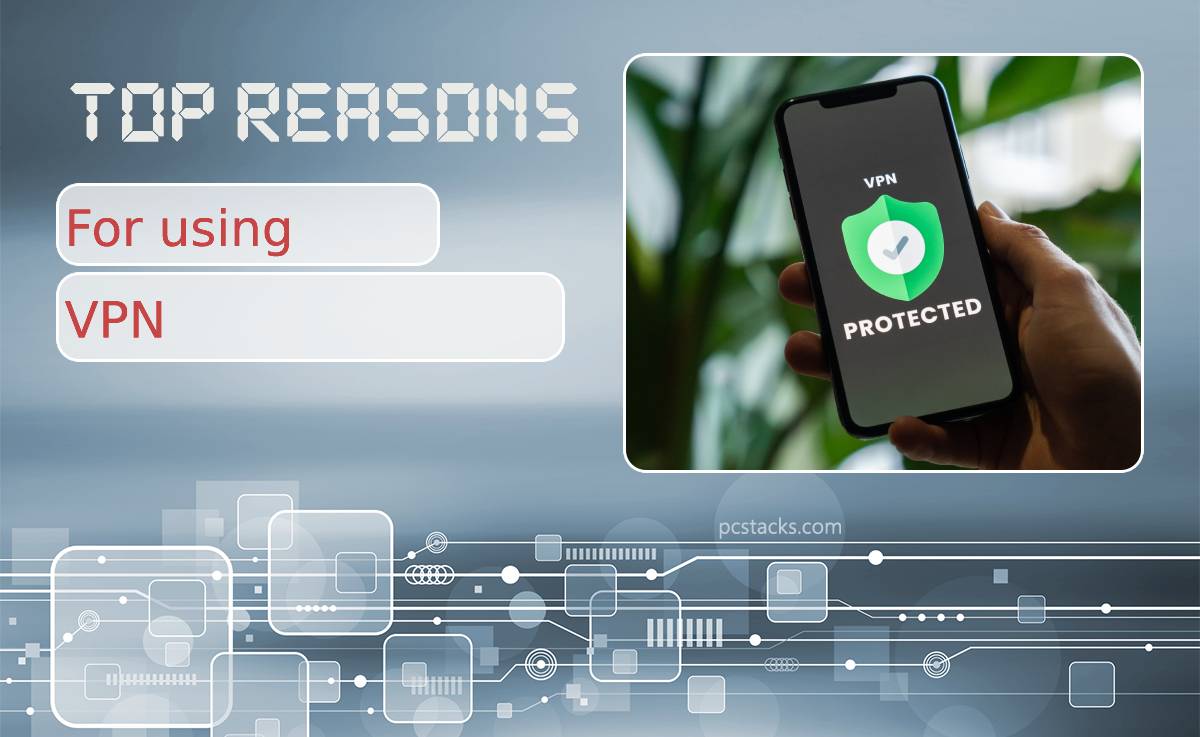VPN, or Virtual Private Network, is a service that provides a secure Internet connection using secure networks. All Internet traffic is based on the principle of “tunneling”. It means that you will connect your device to another network where your IP address is hidden and all your data is encrypted.

The basic idea of such a network is data protection. Users of VPN networks with special security requirements are often banks and companies with a lot of information about their business. When it comes to using VPNs for private purposes, it is mainly used for:
- connecting to a public network, say in a cafe, where we are never sure who can access our data (especially when it comes to doing business),
- when it comes to home internet, it protects us from providing access,
- use of restricted content on online platforms,
- for more secure access to torrents,
- for unrestricted use of the Internet in countries that restrict content, such as China, Turkey, or Russia.
How Does a VPN Work

When you connect to a VPN, you use the Internet as an infrastructure in which a “tunnel” is created through which data is transferred, and only you can access it. In practice, this means that you connect to a VPN server on the Internet with a secure (encrypted) connection, and then that VPN server connects further to the locations on the Internet that you visit and returns data to you, again through a secure connection.
It means that the VPN server serves as a “shield” because the Internet does not see you as a user but only sees the VPN server, and to reach you, they must “break” the protection of the VPN server is very unlikely. Public network signal receivers “do not understand” that they transmit signals belonging to a private network and detect them like any other network.
VPN uses IP protocol, Open VPN, PPTP, L2TP, and other protocols. Depending on the protocol it uses, traffic can be faster or slower, and the network more or less secure. Users and providers can manage the VPN.
VPN Advantages
1. Data Security

Although we have mentioned security several times so far, the fact is that data protection on the Internet is becoming one of the most crucial tasks. VPN ensures that users encrypt their data, sending incomprehensible data that hackers cannot ‘read’.
Using a VPN is one of the safer ways to work online, and you can be sure that your data will remain private and will not be the target of a hacker attack.
2. Remote Control
Companies that have many employees operate within closed systems, like their own local networks. But as telecommuting becomes more popular, it is also essential to find a way for employees from their homes to access local companies’ networks.
As a great solution, a VPN is imposed that ensures a secure virtual network, creating a closed system that provides users with a high degree of protection and security.
3. File Sharing
You can easily conclude that one of the main tasks of a VPN is to send data. In addition to protecting data in this way, one of the advantages is sending data to multiple users simultaneously. It allows you to work better in groups and easier handling large amounts of data.
4. Higher Speed

The internet speed depends on your location and to what extent the infrastructure is developed in your area. Because of this, it happens that in more developed places, we have a much higher speed than in less developed ones – which creates an inevitable inequality between companies and individuals.
The solution to this problem can be a VPN that will help you increase the speed of the Internet, or it will allow you to transfer data faster. In addition to speed, all other parameters of sending data should also increase.
5. Filter Punching
Some states block much traffic and websites, making it impossible for users to get information through those sites. You can suppress this censorship through VPN, which has proven to be a reasonably good tool for bypassing various internet filters and censorship on the web.
6. Anonymity

The last advantage of a VPN that we will mention is the ability to achieve complete anonymity online. Unlike some other services, VPN allows you to access both websites and applications anonymously – making your online presence completely anonymous. If you want to be “invisible” on the Internet, it is time to get VPN deals now.
7. The First Choice for ISP Throttling
Internet traffic could be in danger of being throttled. If you want to get rid of ISP throttling, VPN must be your first choice. Just be sure to choose a VPN that will not make your internet connectivity issues worse. Data throttling is only applied to a particular type of internet traffic, meaning your ISP cannot slow down all traffic.
A VPN has the task of encrypting that traffic, making it unlikely for your ISP to detect it. Your ISP will be confused and does not know whether you are scrolling away or watching Netflix.
Conclusion
VPN is an increasingly popular service on the Internet, and with all the above advantages, it is pretty clear why this is so. It has become a necessity in this age of online monitoring, especially if you want to protect your privacy and secure your data exposed through various spyware, malware, etc. There are many possibilities, and one of the essential elements is the security of communication and data exchange.
With a VPN, you create a secure connection that cannot be decrypted by another party, such as your ISP. It means that the data you send can no longer be intercepted and stolen. Provide yourself with better working and communication conditions, get a VPN and enjoy the benefits it offers.




